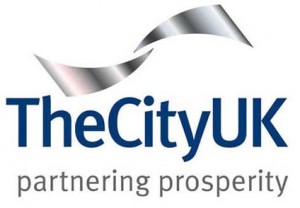TheCityUK: spreading PFI like a virus
Guess what Spain, Greece and Italy’s fiscal crises all have in common? They were all preceded by government splurges on PFI, or, as it’s known on the continent, PPP. Guess what else they have in common? A UK financial lobbying organisation, International Financial Services London (IFSL) now known as ‘TheCityUK’, was instrumental in promoting these PPPs to our continental neighbours.
In 2008 a trade journal reported that “Big things” were promised for Spain’s PPP sector, Greece was described as a “boom town of Europe” and Italy was “set to be Europe’s biggest PPP market”.
Here’s the now obsolete Public Private Finance in July:
“Big things have been predicted for Spain’s partnerships market. In March this year, a report by the business lobbyists International Financial Services London (IFSL) said Spain should lead the way in Europe’s blossoming market. Spain signed off on the highest value of deals on the continent last year, a respectable €41. billion (£3.2 billion).”
Meanwhile in Greece, Public Private Finance reported:
“Greece is announcing so many new projects at the moment that it looks like the boom town of Europe for the partnerships industry. Massive transport projects are planned, and the government is also backing smaller schemes such as new schools and hospitals.”
“This March, a report by business lobbyists International Financial Services London found Greece was procuring public private partnership projects worth €6.3 billion (£5 billion) last year. That figure is expected to grow.”
In April of the same year, Public Private Finance stated:
“Europe’s partnerships market is set to surge, according to business lobby group International Financial Services London (IFSL)… Its research revealed €68 billion (£52 billion) in projects were being procured across the continent last year, up from €55 billion in 2006. Italy was set to be Europe’s biggest PPP market, the report found, with €30 billion worth of projects being procured.”
Is it a coincidence that Greece was a PPP “boom town” in 2008 and, as 2012 looms, the country finds itself on the brink of default? Almost certainly not. PPPs are a signature of the culture of massive and irresponsible borrowing and lending that has plunged Greece, and Europe, into the red over the last decade.
PPPs, while costing nothing upfront, lock governments into long-term debt and reduces their liquidity. Every deal that is signed writes off millions of Euros from forthcoming annual budgets, giving government less and less room for manoeuvre. Once signed, PPPs are extremely difficult to stop or renegotiate and contracts typically last 30-50 years.
Signing PPPs after the credit crisis was difficult for companies, and more expensive for governments. The credit crunch made borrowing expensive and borrowers had to repay debts at much higher rates of interest. It was a bad time to be making new deals. It was cheaper for governments to borrow than it was for companies. PFI meant that government ended up paying companies to borrow effectively on their behalf. In the UK, the National Audit Office, a parliamentary spending watchdog, concluded that PFI projects were 20-33% more expensive after Lehmann Brothers crashed than before it.
So why did IFSL think PPP was such a good idea? IFSL used to be called the British Invisibles. It was formed in the 1960s to promote ‘invisible’ British exports such as financial services. It recently re-branded itself yet again to become TheCityUK in 2010 but although its names have changed its basic remit has not.
IFSL represented the interests of many of the banks, construction companies, investment funds and service providers that have done extremely well out of PFI in the UK. Having pioneered PFI and PPP, the UK has been marketing itself internationally as global experts and consultants on the schemes over the past decade.
IFSL, and other companies like British Expertise and Altra Capital have worked with departments like UKTI, the FCO and the City of London Corporation to advance the global standing of PPPs and position the UK as a ‘centre of excellence’.
Ironically, PFI and PPP are now getting trashed in their birthplace. The Treasury Select Committee’s report last month said that PFI projects are a bad deal for the taxpayer and that they are up to 1.7 times more expensive than direct government procurement. That’s an extra £700 million for the PPP industry on every £1 billion spent by government.
But it seems IFSL, now the TheCityUK, has not heeded advice of the Treasury and moved on to pastures new. Discussing Egypt and Tunisia’s falling growth in 2011, their website predicts, “PPP will look increasingly attractive to [these] governments to meet their infrastructure needs.”








